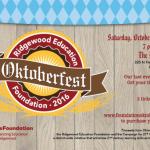The Relationship Between Dopamine and Food Addictions
 Eating is a natural and essential human activity meant to sustain our bodies and provide energy to go about our daily lives. In terms of evolution, our bodies are still programmed for the survival of caveman days – feast or famine. What this means is we are easily drawn to eat high calorie foods (because our bodies don’t know that our next meal is in a few hours – it’s still wired for survival). These high calories foods, (also called hyperpalatables) are high in sugars, fats, starch and salt – the exact same foods that are the culprits of our rising obesity epidemic and other metabolic diseases. But WHY does this happen and WHY is it just so difficult to go cold turkey on these foods? Well, in this amazing article by Pam Peeke, she explains recent scientific findings that indicate a very intricate relationship between dopamine, food cravings and the difficulty of overcoming these harmful habits.
Eating is a natural and essential human activity meant to sustain our bodies and provide energy to go about our daily lives. In terms of evolution, our bodies are still programmed for the survival of caveman days – feast or famine. What this means is we are easily drawn to eat high calorie foods (because our bodies don’t know that our next meal is in a few hours – it’s still wired for survival). These high calories foods, (also called hyperpalatables) are high in sugars, fats, starch and salt – the exact same foods that are the culprits of our rising obesity epidemic and other metabolic diseases. But WHY does this happen and WHY is it just so difficult to go cold turkey on these foods? Well, in this amazing article by Pam Peeke, she explains recent scientific findings that indicate a very intricate relationship between dopamine, food cravings and the difficulty of overcoming these harmful habits.
In a nutshell, dopamine is a neurotransmitter responsible for signaling and seeking out rewards in the brain and is directly connected to eating and foods. It’s released even when we think of eating food, especially high calorie foods (this is the anticipation of a reward). It also signals when we are receiving the reward and the satisfaction feeling of a reward. Now add to this the fact that these hyperpalatable foods (especially SUGAR) are more highly addictive than cocaine and heroin AND the fact that eating these foods chronically floods dopamine receptors in the brain (the ones that signal satisfaction). Large amounts of dopamine wash out many of the receptors. The result: it takes more and more dopamine to feel rewarded and therefore, we eat more of these high calories foods and it’s a vicious cycle that continues to spiral out of control. This explains why it’s so hard to just STOP eating those foods once we start and why our cravings become greater and greater – there’s literally NO satisfying them, we now have an addiction problem. If that’s not enough, the kicker is these foods along with the decrease in dopamine receptors also affect other aspects of our brain that deal with decision making, energy, irritability, etc – hence the symptoms of withdrawal. One study showed that rats would gorge themselves nonstop on sugary foods in the one hour/day they were exposed to them and spend the rest of the time in the fetal position with the shakes, not even interested in regular rat food. Sound familiar? In another study, rats CHOSE sugar over cocaine or heroin.
The bottom line here is the more junk food you eat, the more you crave it AND the more you’ll need to consume to feed the craving because it quickly becomes an addiction. It also demonstrates the relationship between these food additions and your daily life – the cravings become all-consuming – it’s all you can think of.
But there is good news – we do have the genetic capability to overcome these addictions. Our bodies (and hence our genomes) have the ability to adapt to their environments (by allowing certain gene expressions occur or not). If your body is being nourished by high calorie foods, it will adapt the way I’ve described. If your body receives nutritionally dense food full of antioxidants, vitamins (especially omega 3’s and vit B) and minerals it responds to this too. So, what you put in your mouth will determine the gene expression – good or bad. Other studies have shown that these addictions can also be overcome by meditation, in particular decreasing your stress levels as the hormones released by stress further perpetuate the dopamine cycle. Exercise, even as little as going for walks or doing jumping jacks, will release the other reward hormones and suppress the affects of dopamine. Taking baby steps towards better food choices, positive activities and an awareness and understanding of the negative relationship between dopamine and food addictions will get you back on track – feeling and looking better.



















